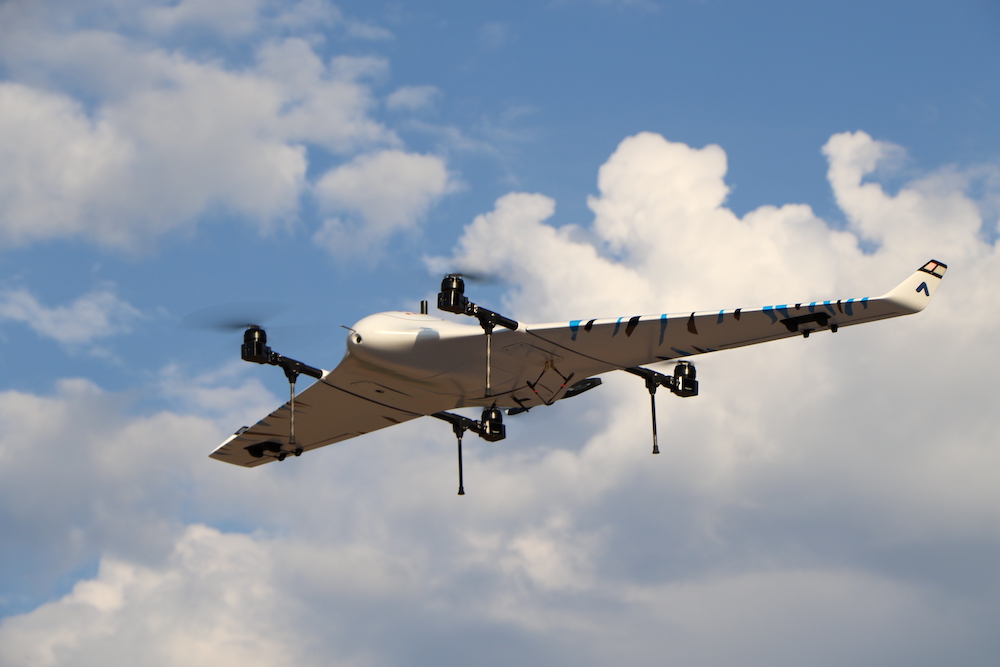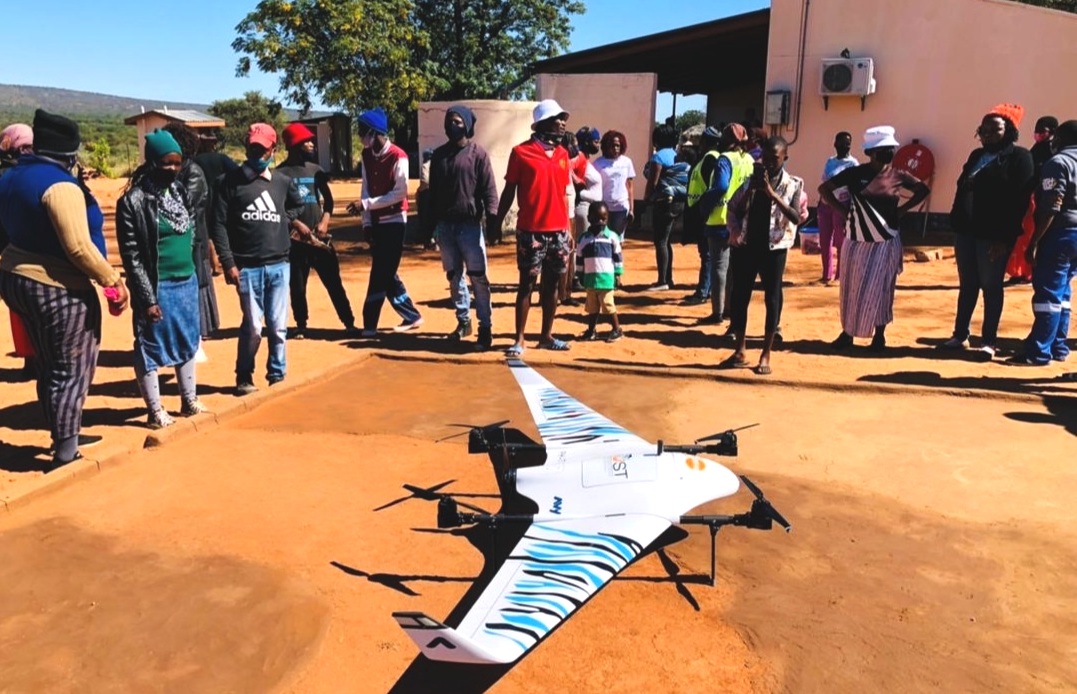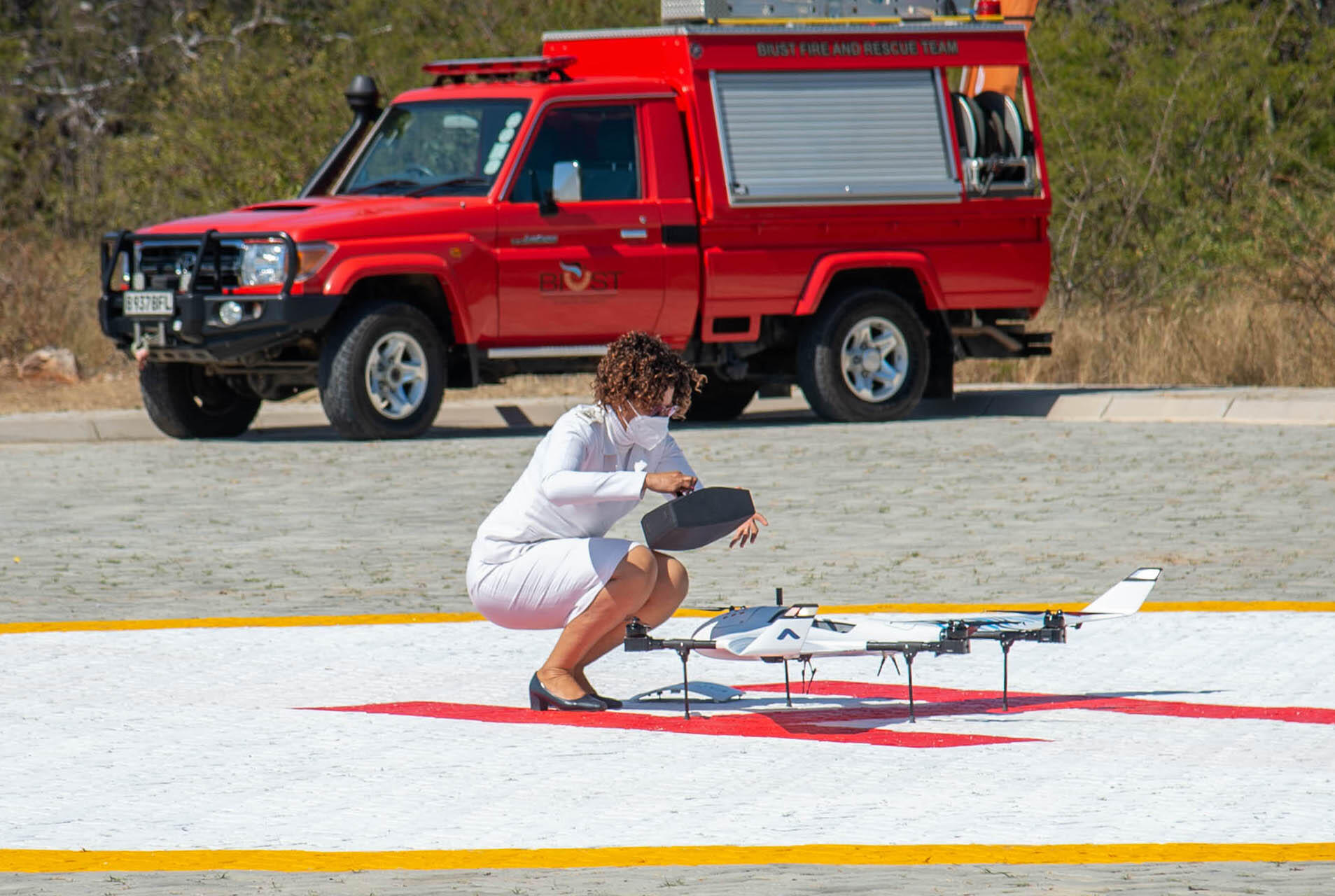PALAPYE, Botswana—Botswana, one of Africa’s few upper-middle income countries, is the the first country in Southern Africa and the third in Africa to pilot drone technology for health-care delivery.
The nation has a maternal mortality ratio that is almost double the average for upper-middle income countries, at 166 deaths per 100,000 live births. In 2017, the Government of Botswana set a national MMR target of 71/100,000 by 2025 and 54/100,000 by 2030.
The Drones for Health pilot project aims to accelerate the reduction of preventable maternal death by delivering maternal health supplies and commodities – including essential obstetric care drugs, blood, blood products and laboratory specimens – in a timely manner, particularly to hard-to-reach communities and health facilities, to save the lives of women and newborn babies.

Timeliness in attending to women who experience pregnancy and childbirth-related complications is paramount, especially in remote and hard-to-reach areas. The main causes of maternal deaths in Botswana are excessive bleeding (postpartum haemorrhage), complications after abortion and hypertensive disorders during pregnancy. To provide live-saving emergency obstetric care, health facilities need to be fully equipped with the supplies and skills needed to deal with such emergencies.
Due to Botswana being a large and sparsely populated country, with long distances between lower and higher-level facilities, the last-mile delivery of live-saving medical products and supplies can be a challenge. This is heightened in hard-to-reach places where there may be a shortage of vehicles, inaccessible roads due seasonal blockages, and inefficient supply chain systems.
“The need to invest in innovative options to bridge the long distances, reduce current transportation costs, overcome road infrastructure challenges, and improve timely availability of essential emergency obstetric care drugs, commodities and supplies is therefore urgent,” said Dr. Edwin Gorataone Dikoloti, Botswana’s Minister of Health and Wellness.
Women experience massive blood loss due to haemorrhage during childbirth, with many requiring a blood transfusion. Blood is therefore critical.
Dr. Dikoloti was speaking at the recent launch of the Drones for Health initiative.

“Women experience massive blood loss due to haemorrhage during childbirth, with many of them requiring a blood transfusion. Blood and blood-based products are therefore critical,” said Beatrice Mutali, UNFPA Country Director for the Botswana Country Office, speaking on behalf of Dr. Julitta Onabanjo, UNFPA Regional Director for East and Southern Africa.
Smart innovations to protect the wellbeing of women and girls
A Ministry of Health and Wellness programme report shows that the country’s national referral hospitals contribute the majority (49 per cent) of maternal deaths while primary, district and private hospitals contribute a combined 41 per cent of deaths. Clinics contribute about 10 per cent of deaths. Maternal deaths are disproportionately located among the 25 to 29-year and 30 to 34-year age groups. Each year, between 6 and 8 per cent of maternal deaths occur among adolescents aged 15 to 19 years.
To harness the latest technology aimed at bringing break-through solutions to protect the health of all, UNFPA has partnered on the initiative with Botswana’s Ministry of Health and Wellness, the Ministry of Tertiary Education, Research, Science and Technology, and Botswana International University of Science and Technology (BIUST).

“The sustainable reduction of maternal, newborn, and child deaths and overall improvement of health care in general, including sexual, reproductive and adolescent health, remains a high priority for the Government of Botswana,” said Dr. Dikoloti.
Technology and digitally driven solutions have the potential to transform [access to timely] health-care [services], particularly for women and girls in underserved communities.
The Drones for Health initiative will contribute to a quicker and more cost-effective transportation of medical supplies, including blood products, emergency drugs like oxytocin, and other health essentials, including sexual and reproductive health items.
“Properly implemented, these innovations will maximize the beneficial impact of drone technology in addressing the unmet health needs of poor and vulnerable populations,” said Ms. Mutali.
“Technology and digitally driven solutions have the potential to transform [access to timely] health-care [services], particularly for women and girls in underserved communities, often left behind due to geographical proximity…as they live in hard-to-reach areas,” she said.
The use of drones to deliver essential medical supplies is expected to reduce the delivery time from hours to minutes, meaning that obstetric emergency supplies could arrive in time to save lives, according to BIUST Vice Chancellor, Professor Otlogetswe Totolo.
Each battery-powered aerodrone has a delivery distance of 100 kilometres and can carry cargo with a weight of up to 2kg at a time. The four villages involved in the pilot project are Lecheng, which is located 32km from Palapye by road and 11km via drone; Mokgware, with a distance of 55 km by road and 32km by drone; Mogapi, 108km away by road and 75 km via drone; and Moremi, 75km away by road and 36km via drone.
Community members in the pilot areas have supported the project by building the landing pads for the drones at the designated health posts.
The Drones for Health initiative was conceived in 2018 and is to be implemented in three phases. Phases I and II will be dedicated to proof-of-concept and viability testing. Following a successful rollout, Phase III will involve the development of the business model, identify sustainable partnerships, and the scale up and transfer of innovation solutions to the Ministry of Wellness and Health.


